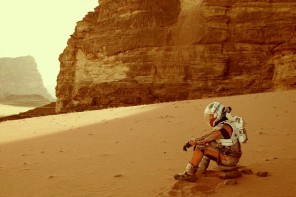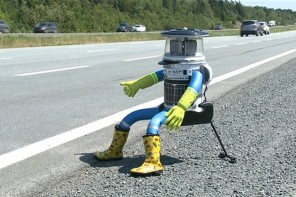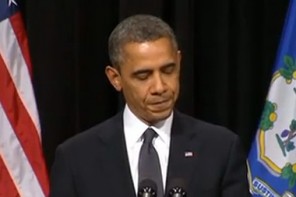Wastelands: Stories of the Apocalypse
Edited by John Joseph Adams
(Night Shade Books, 2008)
One might well imagine that the stories in an anthology called Wastelands: Stories of the Apocalypse might be nothing but a couple dozen writers attempting to out-depress each other. How much can there really be to explore in post-apocalyptic scenarios? How much ground is there to cover between The Road and The Road Warrior?
Pleasant surprise, then, that editor John Joseph Adams has chosen stories that show so much variation, not just in setting but in tone. There are several elegiac tales here, to be sure, but there are just as many optimistic ones, and even one or two comedies. It’s far from a tedious series of stories about savage motorcycle gangs—there’s real diversity here, and you’re hard pressed to find two stories that are alike.
The contributors to Wastelands find an amazing array of ways to bring about the end of the world. There’s the old Cold War standby of nuclear war, of course, but there are also deadly viruses (Stephen King’s “The End of the Whole Mess”), runaway pollution (Paolo Bacigalupi’s “The People of Sand and Slag”), and general economic collapse (Jonathan Lethem’s “How We Got In Town and Out Again”). In Cory Doctorow’s “When Sysadmins Ruled the Earth”—probably the anthology’s best story—it’s a synchronistic series of unconnected acts of terrorism. The most original set-up is in Octavia Butler’s “Speech Sounds,” in which a virus wipes out the human race’s ability to use and comprehend language. Elsewhere the cause of the apocalypse is ambiguous—something best illustrated in Gene Wolfe’s “Mute,” in which two children watch news reports about a mysterious disaster on a television with no sound. They know the world is falling apart, but they don’t know how or why.
Despite this parade of nightmares, there’s a pervasive sense of optimism in these stories—an optimism that, paradoxically, lies at the heart of all post-apocalyptic fiction. The fact that there are any stories to tell means that something has survived. In a way, these aren’t end-of-the-world stories at all, because the world doesn’t really end—or rather, the world ends, but humanity carries on. These are post-apocalyptic stories, and their focus is not on destruction, but rebuilding. That hopefulness sneaks its way into most stories in the subgenre. Cormac McCarthy sneaks it into the last few paragraphs of his oppressively bleak novel The Road, but it forms the backbone of definitive stories like Walter M. Miller’s A Canticle For Leibowitz—not to mention Mad Max Beyond Thunderdome. The overriding narrative in most post-apocalyptic fiction is the emergence of order from chaos. The religious nature of this enterprise is nowhere so clear as in Orson Scott Card’s “Salvage,” in which Mormons forge the culmination of the American dream in a post-nuclear desert. The title of Jack McDevitt’s entry in Wastelands is telling: “Never Despair.”
Nevertheless, there’s a specter haunting Wastelands: the specter of Left Behind. Inherent in the postapocalyptic story (as with the giant monster movie) is the idea that the world deserves what it gets, that whatever disaster has occurred is the fitting punishment for the sins of military or scientific hubris. For all the hopefulness displayed in stories of reconstruction, there’s a sense that what has survived has been made pure in the crucible of cataclysm. And that, of course, is the approach of premillenial dispensationalists like Tim LaHaye and Jerry Jenkins, whose Left Behind novels delight in meting out righteous punishment just as much as Wasteland’s authors enjoy painting glimpses of the depopulated New Jerusalem. But in both cases there’s a perverse delight in the overthrow of all that has come before, something of the sentiment of Elvis Costello’s “Waiting For the End of the World”:
“Dear Lord I sincerely hope you’re coming / ‘Cause you really started something.”
The means by which the better future is wrought mark the key difference between these progressive apocalypse scenarios with LaHaye’s regressive one. In Wasteland, humankind creates its own future; in Left Behind only God can actually set things right. LaHaye and Jenkins’ stories aren’t post-apocalyptic, but simply apocalyptic; their focus is on destruction first, with divine rebuilding consigned to a few chapters of the final volume. Jerry Oltion’s “Judgment Passed” (incidentally the only story original to this volume) deals directly with Left Behind, describing the experience of a group of astronauts who return to Earth after a general rapture has removed every human from the face of the earth (presumably to be sorted out elsewhere). Oltion’s story has a certain smugness, which Adams encapsulates in his introduction to the story: “Oltion has strong views on religion—namely that it’s a scourgeon humanity—that led him to write this story, which speculates on whether or not being ‘left behind’ would be such a bad thing.” For all its desire to set itself apart from fundamentalist apocalypticism, “Judgment Passed” ends up giving the same sort of us-versus-them message, complete with the idea that the destruction of society is ultimately a Good Thing.
A more nuanced approach shines through in Dale Bailey’s “The End of the World As We Know It,” which interjects metafictional thoughts on the nature of the post-apocalyptic subgenre into the story of the proverbial Last Man on Earth. Bailey views the destruction of human civilization through a very different biblical lens, considering not Revelation, but Job. He questions the justice of the conclusion of Job’s restoration:
[Job] keeps shoveling down the shit. He will not renounce
God. He keeps the faith. And he’s rewarded: God gives him back his
riches, his cattle. God restores his health, and sends him friends.
God replaces his kids. Pay attention: Word choice is important in an
end-of-the-world story.I said “replaces,” not “restores.”
The other kids? They stay dead, gone, non-functioning, erased forever
from the earth, just like the dinosaurs and the 12 million
undesirables incinerated by the Nazis and the 500,000 slaughtered in
Rwanda and the 1.7 million murdered in Cambodia and the 60 million
immolated in the Middle Passage.That merry prankster God.
That jokester.
Bailey will not accept a divine justice that requires Left Behind-style suffering. And, though Wastelands has its share of truly downbeat stories, the anthology gives a stronger sense of that humanism. Even in Card’s Mormon fantasy, it is humanity and not God who creates a livable future. Wastelands is a dare to the concept of divine antipathy to humanity. Do your worst, it says; we will survive.




